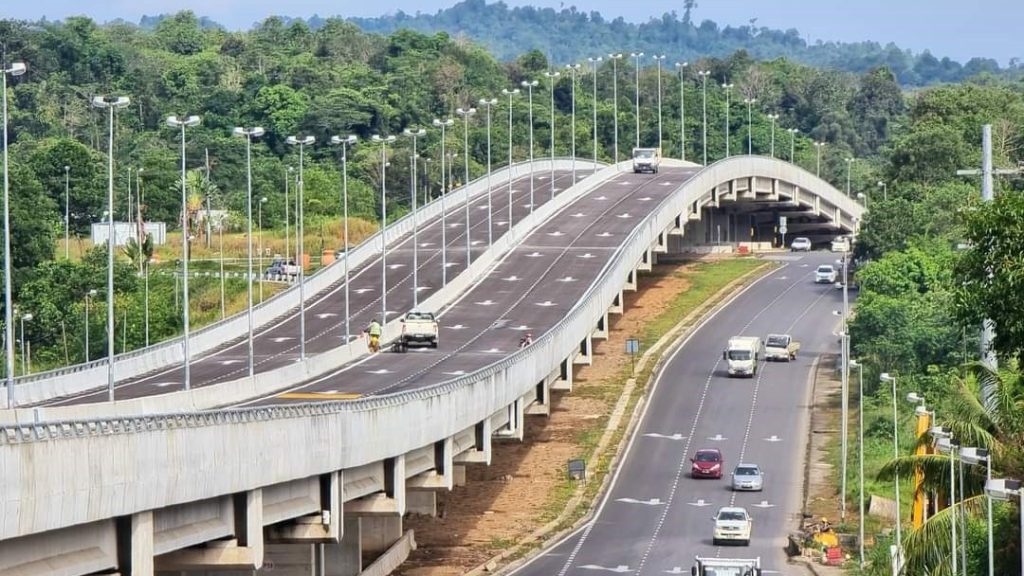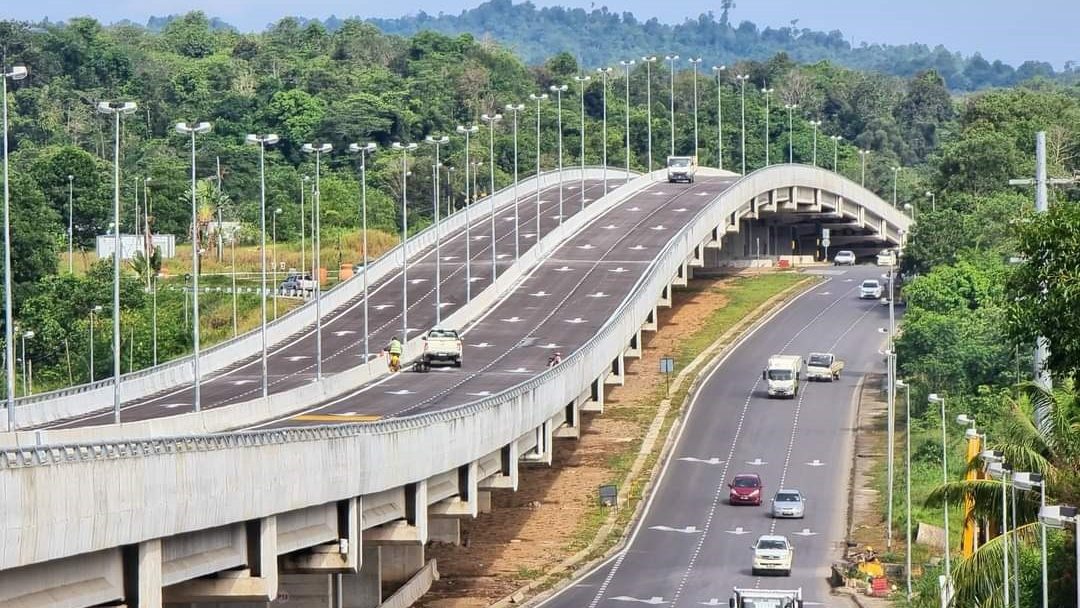Elevated Roads Considered Only Where Necessary

KUCHING (June 13): The federal Works Minister, Dato Sri Alexander Nanta Linggi, has stated that the construction of elevated roads will be based on specific needs, particularly in areas with peat soil surfaces. Elevated roads may be essential in such regions because conventional roads can suffer significant damage when built on peat soil.
“Elevated roads (on peat soil) are a solution to reduce maintenance and repair cases,” he said, responding to reporters’ inquiries about a recent suggestion by Sarawak Premier Datuk Patinggi Tan Sri Abang Johari Tun Openg.
Addressing Road Construction Challenges
Nanta emphasized that the decision to construct elevated roads should be necessity-driven. “If we decide on a certain method like elevated roads, it should be based on needs. For instance, if we build roads on peat soil surfaces using conventional methods, the road might be easily damaged,” he reiterated.
He further noted that this approach is not new, referencing the Public Works Department’s (JKR) implementation of elevated roads, notably on Pan Borneo Highway Package 11 in Lambir, which cost around RM60 million. This elevated road was built after the initial conventional road developed cracks shortly after its completion.
Sarawak’s Need for a New Approach
On June 7, Sarawak Premier Abang Johari highlighted the need for a new approach to tackle road construction challenges on peat soil. The ongoing issues with rehabilitating floating roads over peat soil necessitate studies on the feasibility of constructing elevated roads.
“Lessons learned from our experience constructing roads to Asajaya, Samarahan over six years indicate that even with measures such as laying a ‘carpet’ to soften bumps, the road remains uncomfortable,” Abang Johari explained.
Environmental and Practical Benefits
Abang Johari also pointed out that constructing floating roads on peat soil should be avoided due to the environmental impact, specifically the release of excess carbon into the atmosphere. Elevated roads, however, offer multiple benefits.
“By constructing elevated roads on peat soil, we avoid disturbing the peat, which serves as a carbon storage,” he said. This method can help in minimizing environmental impact and potentially claim carbon storage benefits.
“To achieve good road infrastructure on peat soil, elevation is necessary to preserve the peat for carbon storage. As we are committed to a green economy, it makes sense to opt for elevated roads and utilize piling techniques for construction,” Abang Johari concluded.


